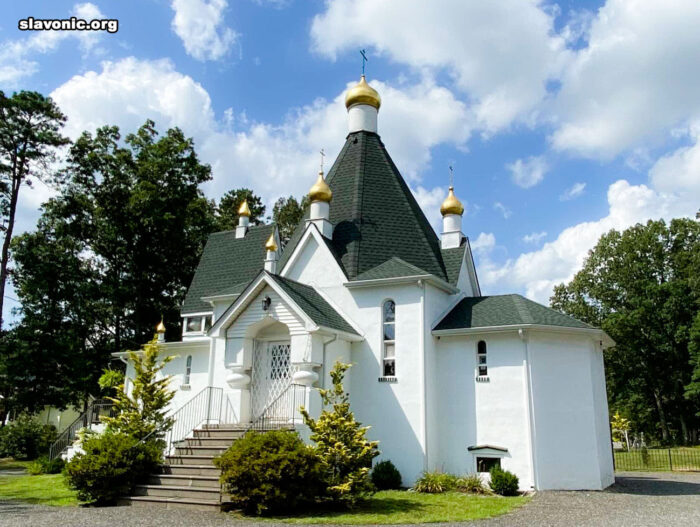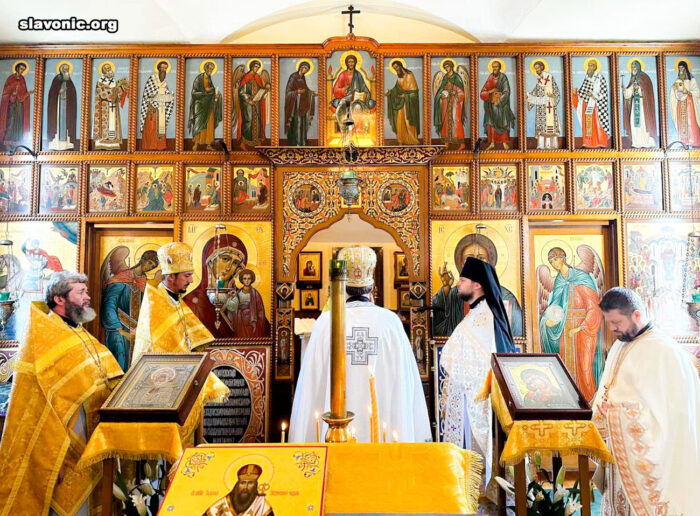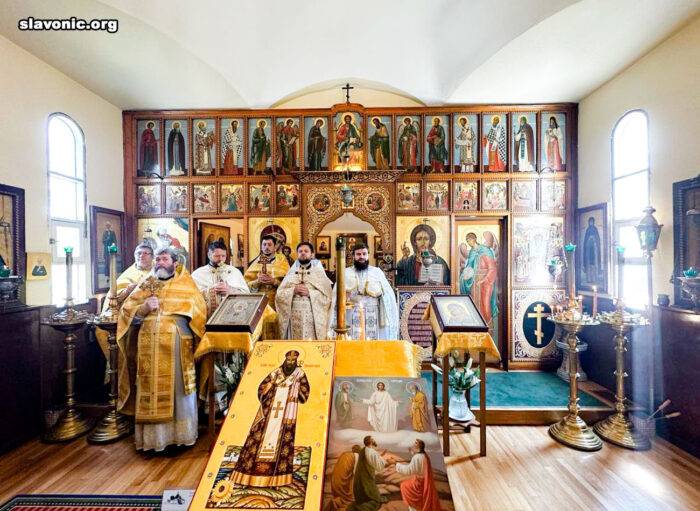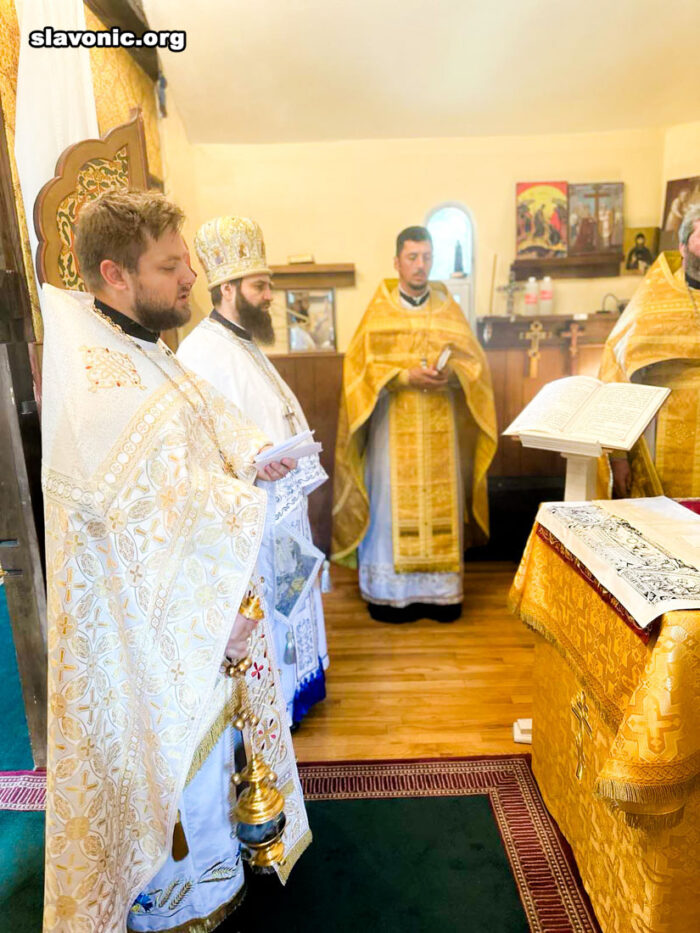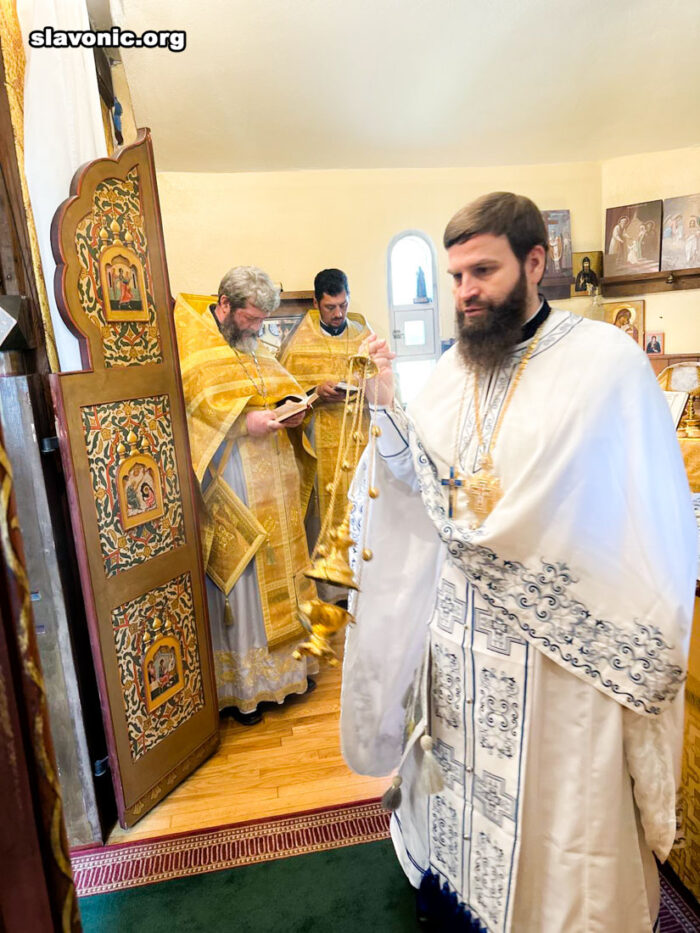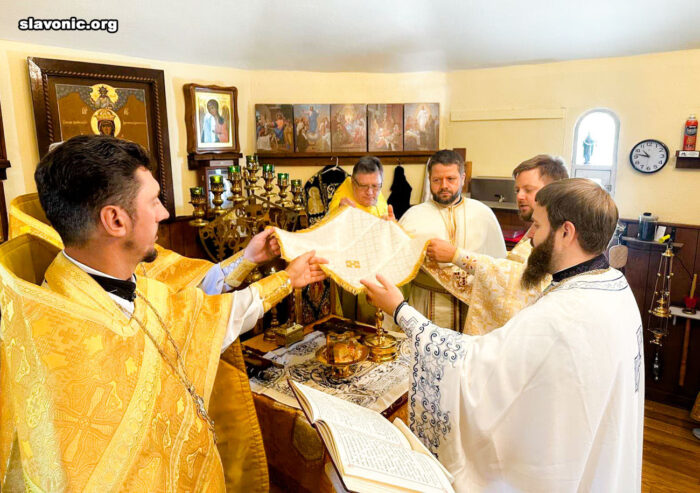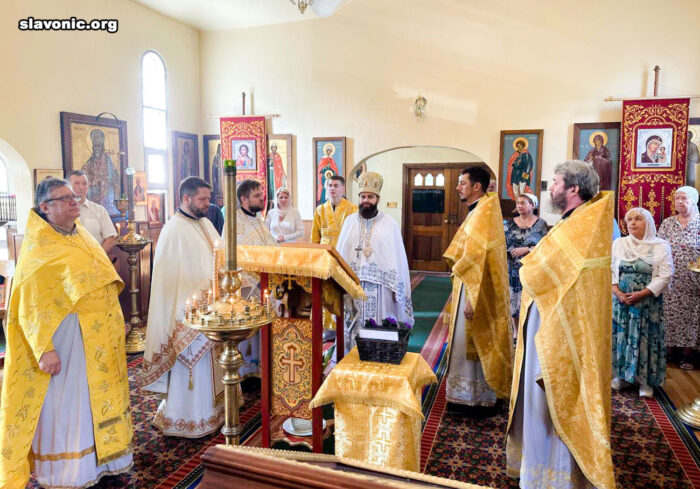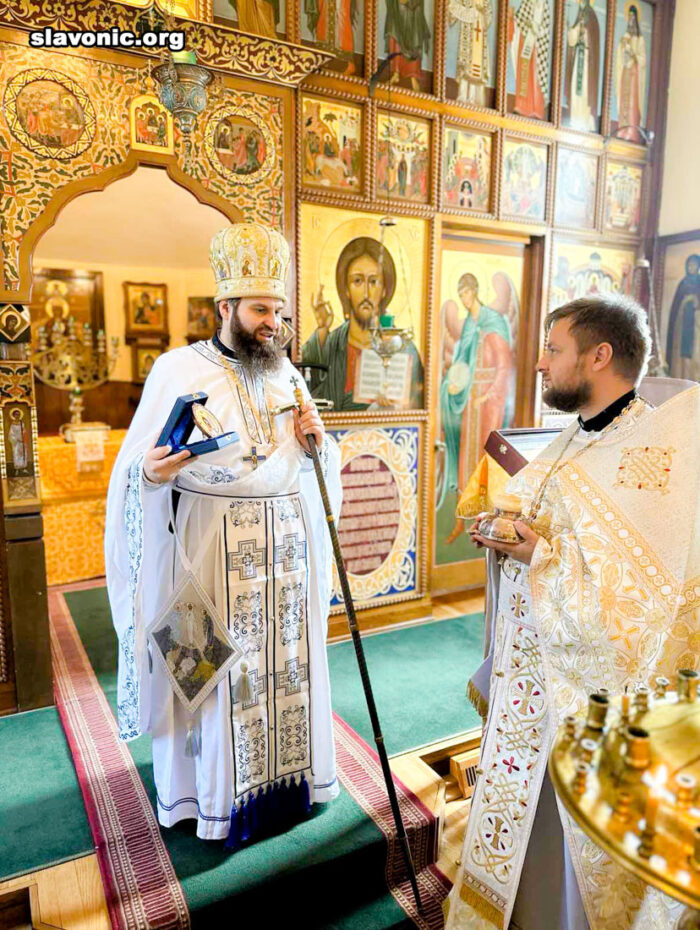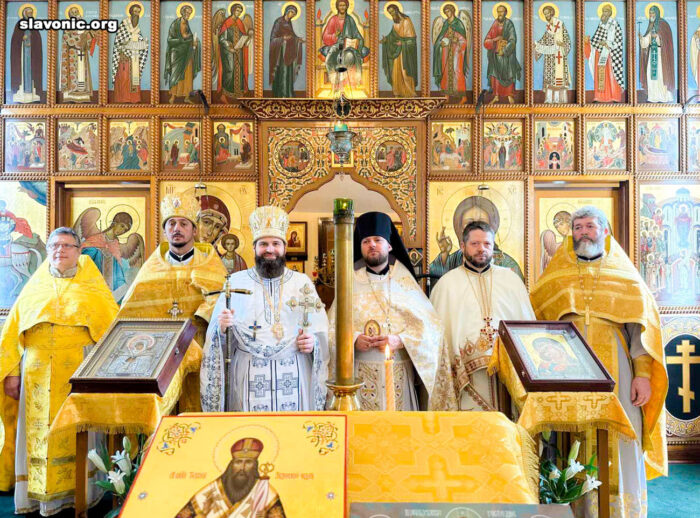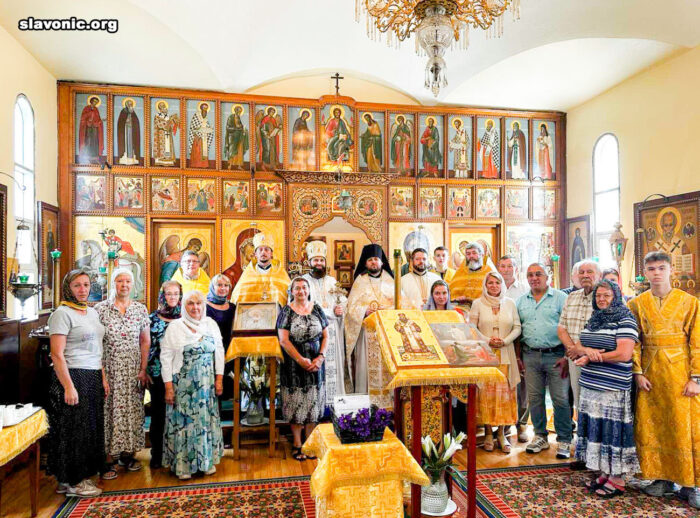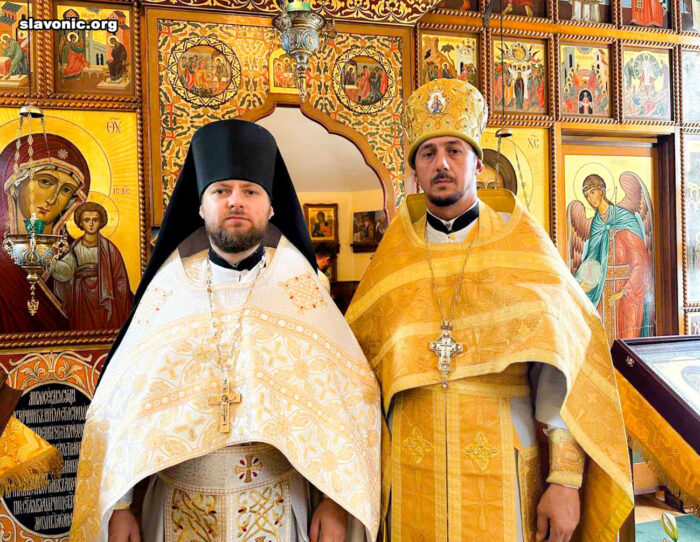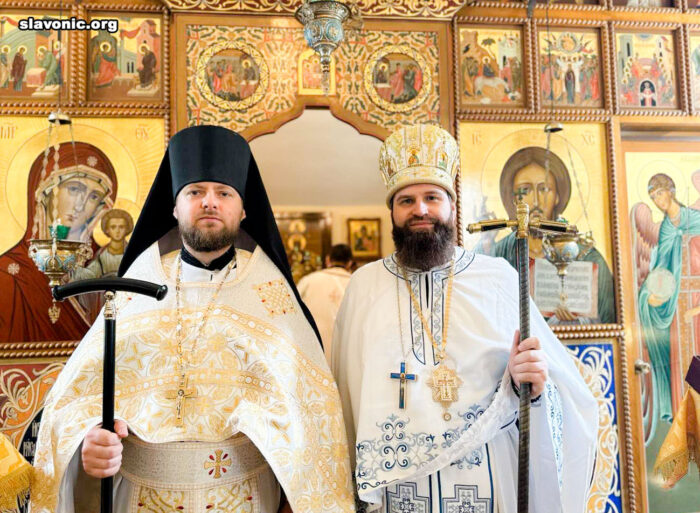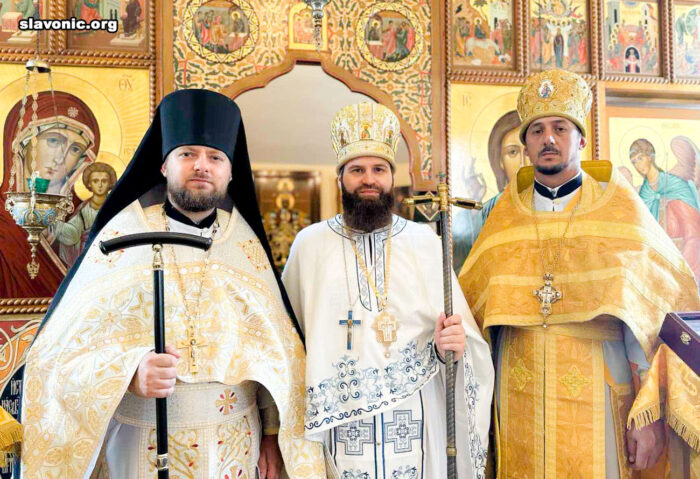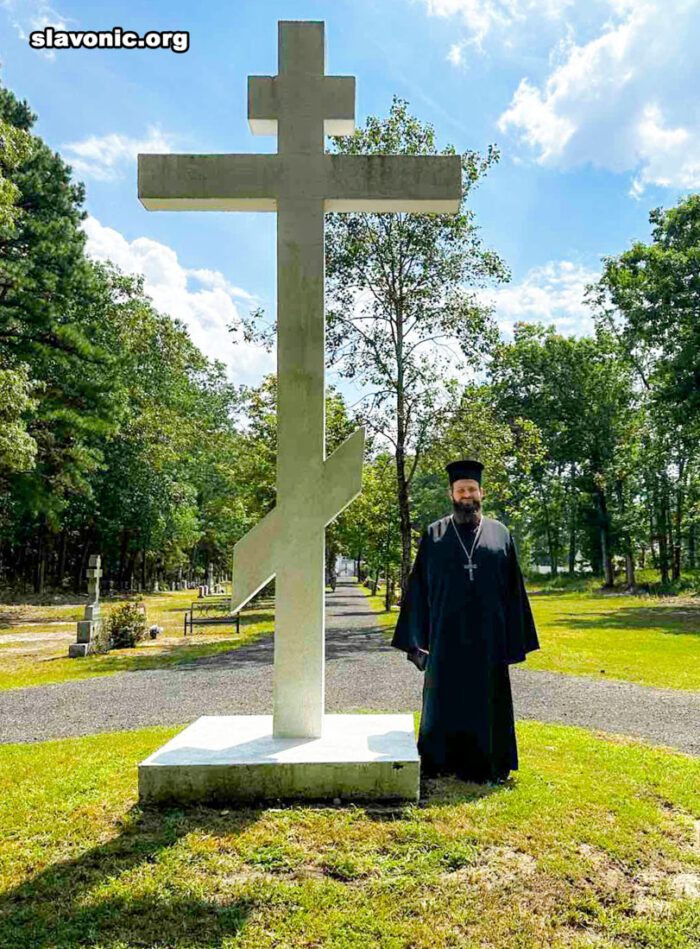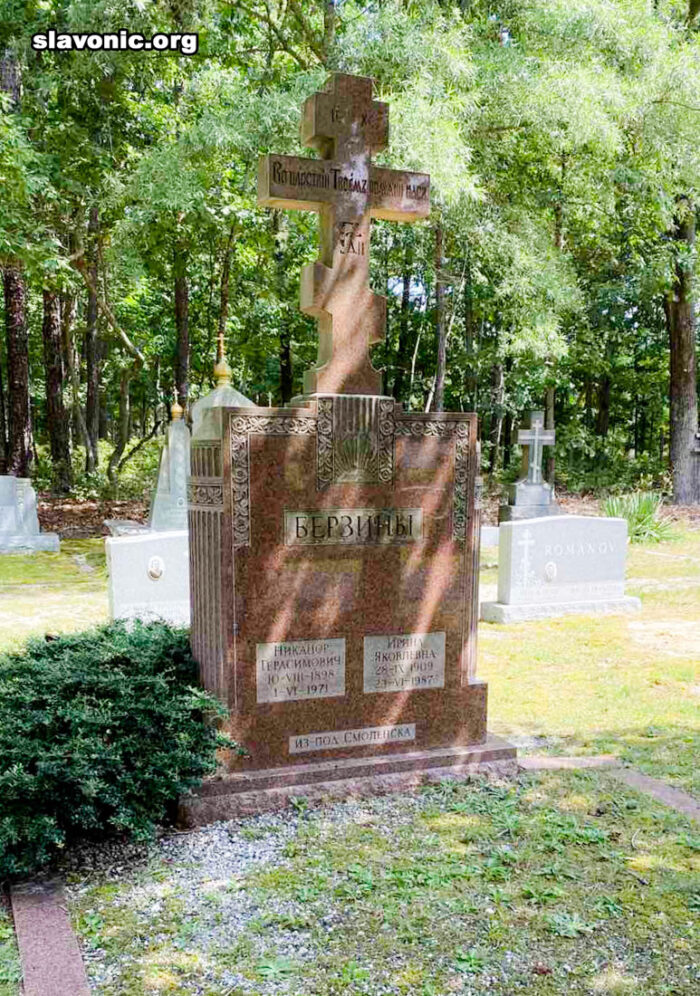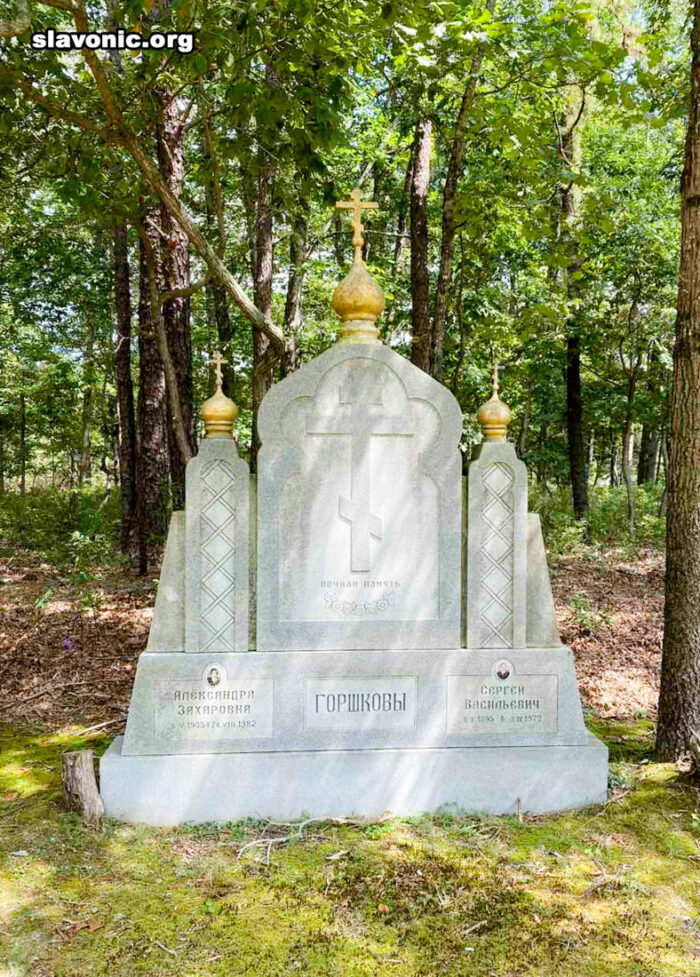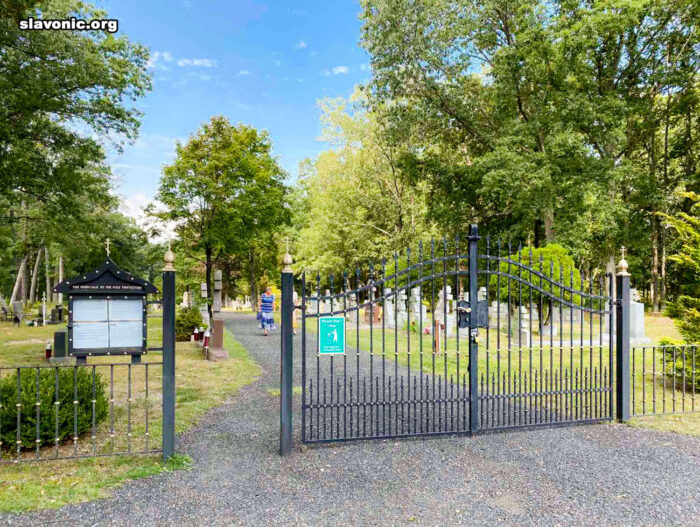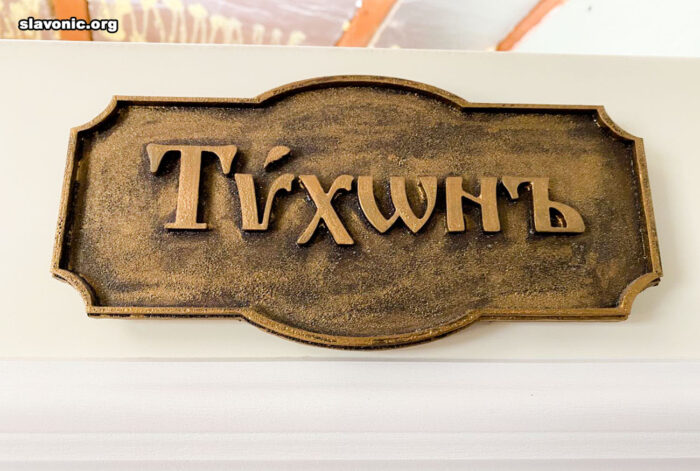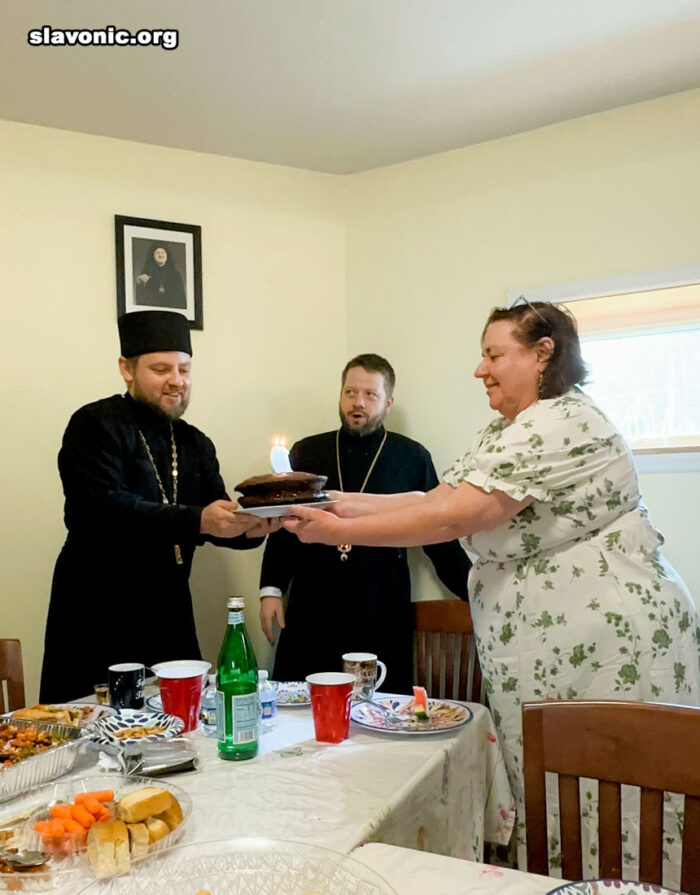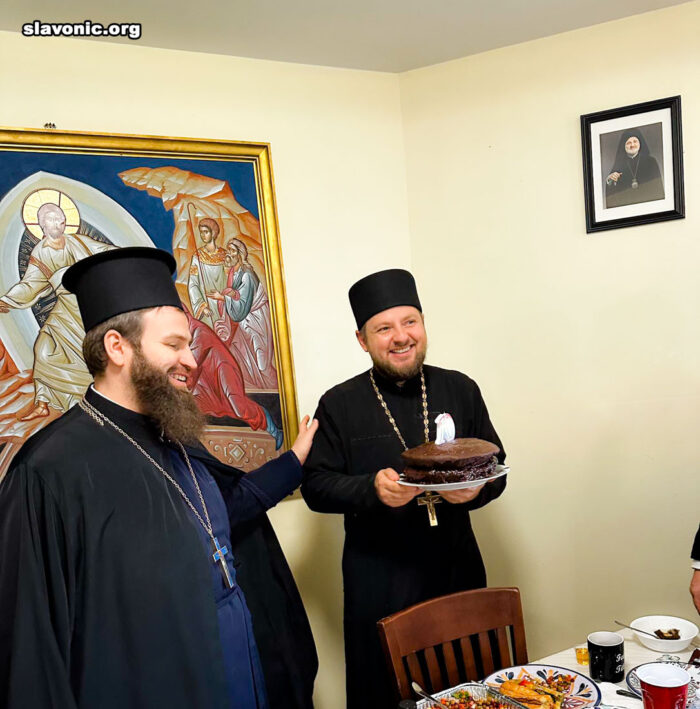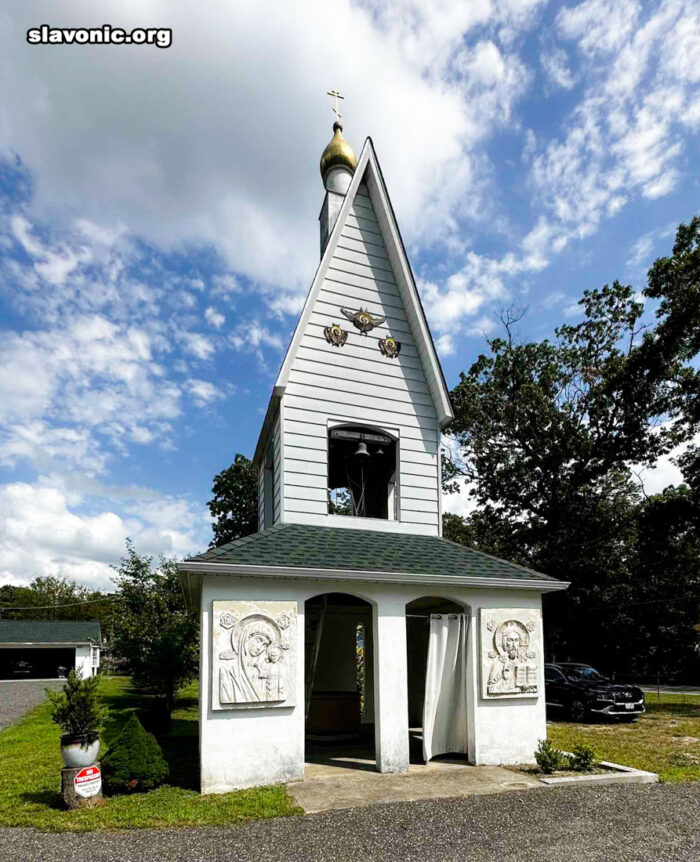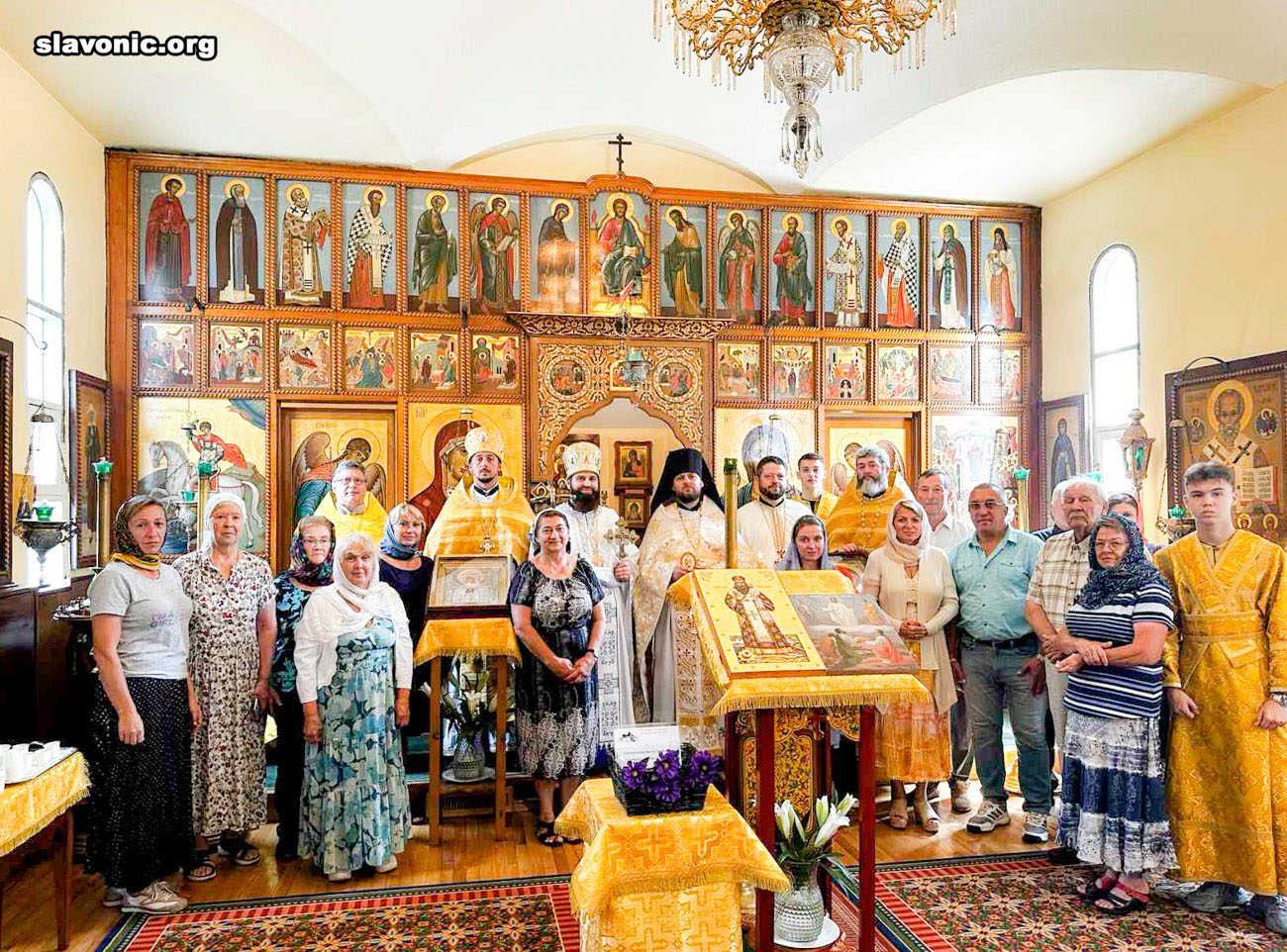
Celebration of Hegumen Tikhon’s Name Day
August 26, 2023On August 26, Archimandrite Alexander, the Vicar of the Slavic Orthodox Vicariate of America, congratulated Hegumen Tikhon, Abbot of the Skete of the Protection of the Holy Theotokos, on his name day. On that day, the leave-taking of the feast of the Transfiguration of the Lord, the repose of St. Tikhon of Zadonsk (1783) and the second recovery (1991) of his relics are celebrated. Archimandrite Alexander served the Divine Liturgy at the Skete in Buena Vista (Novaya Kuban village), New Jersey.
Hegumen Tikhon (Gayfudinov), Rector of the Skete, Archpriest Vasily Deyak and Fr. Peter Prokoptsov, clerics of the Cathedral of the St. John the Forerunner & Baptist in Brooklyn, Archpriest Rostislav Zadorozhny, Rector of the Church of St. Nicholas the Wonderworker in Red Bank, and Archpriest Eduard Chervinsky, cleric of the monastery, concelebrated with Archimandrite Alexander.
In his sermon at the end of the service, Archimandrite Alexander spoke about the life of the great ascetic St. Tikhon, Bishop of Zadonsk.
The future bishop came from the family of a clergyman and reader. Having been orphaned at an early age, he and his family lived in extreme poverty, so that in his childhood he had to work hard. At seminary, he excelled in his studies. After graduation, he became a teacher, and subsequently the Rector. The election of St. Tikhon as bishop was miraculous. On Easter Day in St. Petersburg, he was one of eight candidates for election as suffragan bishop of the Novgorod see. The lot fell on Archimandrite Tikhon three times. On that same day, during the Cherubic Hymn in the Divine Liturgy, Bishop Athanasius of Tver, without realizing it, commemorated him as a bishop, taking out particles from the prosphora. As bishop, St. Tikhon presided over the St. Petersburg Synodal Office, resolving Church issues in the absence of the other bishops in the capital. The abilities of the young bishop were recognized by his appointment to Voronezh. He found the diocese in desolation. He visited many parishes, which he found in poor condition, with illiteracy prevailing among the clergy. Saint Tikhon founded a seminary to educate the clergy. He devoted much attention and effort to the establishment of churches, as well as the development of Slavic culture. He ordered the opening of Slavic schools in all cities, compiling a manual for teachers. Bishop Tikhon was strongly impressed by the unfair trial of Archbishop Arseniy (Matseyevich) of Rostov, the only hierarch of the Russian Orthodox Church who opposed the secularization reforms of Empress Catherine II, which resulted in the closing of more than 800 monasteries. St. Arseniy was stripped of his rank and monastic name and spent the rest of his life in isolation. In 2000, he was canonized. Due to health reasons, Bishop Tikhon left the administration of the diocese after only 4 ½ years of service and spent the rest of his life in the Zadonsk Monastery. There he became a great teacher of Christian life and the author of many books for monastics, pastors and all believers.
Congratulating Hegumen Tikhon on the day of his heavenly patron, Archimandrite Alexander gave him an icon of SS. Cyril and Methodius, Equal-to-the-Apostles, who are the patrons of the Slavic Orthodox Vicariate. He said, “Every person in their life goes his own way and Golgotha often passes, after which the Resurrection always follows. I wish, Hegumen Tikhon, that in your life after the Calvary path that you are now passing, with God’s help and the prayers of your heavenly patron Saint Tikhon, there will also be a Resurrection.”
Hegumen Tikhon thanked the clergy and parishioners for their joint prayers and warm words of congratulations. At the trapeza (meal) following the service, the Vicar thanked Hegumen Tikhon for his hospitality and wished God’s help in carrying out his pastoral ministry.
The guests later toured the Orthodox cemetery on the territory of the Skete, which was founded back in 1967. Russians, Ukrainians, Serbians, Americans, and other nationalities are buried there. The cemetery, as well as the monastery itself, have been restored since the mid-2010s through the efforts of Hegumen Tikhon and the parishioners.

